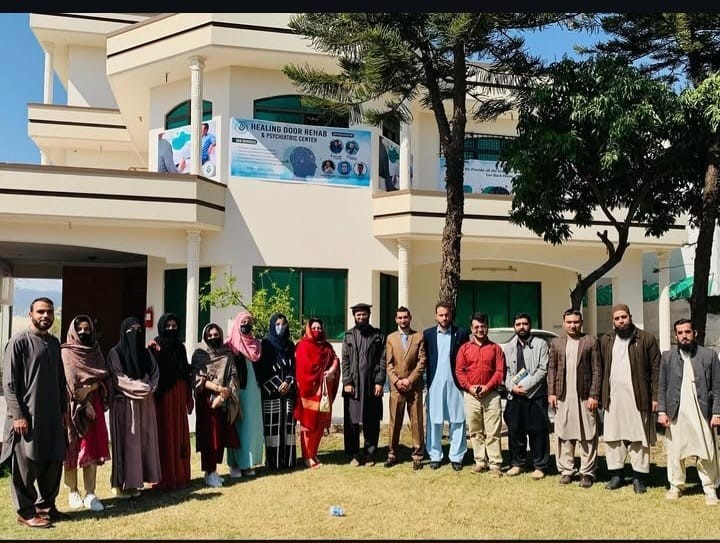Invest in Your Mind: Find the Best Psychiatrist in Islamabad Today
The problem with mental health is grievously underestimated as people in such a fast-developing heartbreaking environment as Islamabad, where modern and traditional values of life always compete with each other, do not realize the large significance of proper mental health. It is just like taking care of our health by maintaining good diet and physical exercise, it is also important to take care of our mental health. The little steps taken, such as consulting the best psychiatrist in Islamabad, can be an effective change. Not only is it courageous to put one health above all, but it is also a necessity to access a more moderated, gratifying, and more significant life.
The Unseen Battle: Why Mental Health Deserves Priority in Pakistan
The level of mental illness is much higher in Pakistan than any one wants to admit and estimates revealed that more than 50 million individuals are likely to be struggling with a mental illness. This means an approximate of one out of every four adults has some form of psychiatric disorder in their life time. Although the problems related to a considerable number of the population, they are often unexplored and unresolved by the community and are surrounded by profound stigma, cultural taboos, and ignorance.
Common mental health challenges prevalent across Pakistan include:
- Depression: It includes the millions of people and may be multiplied by a situation that comes with socioeconomic elements such as poverty, unemployment, and social pressures. Depression has a greater burden on women especially.
- Anxiety Disorders: Encompassing a significant part of the population (estimated neurotic and stress-related disorders at 24.8%) and based on a pathological worry and physical discomfort, the generalized anxiety disorder and the social anxiety are the most widespread.
- Substance Use Disorders: Is consumed as a dysfunctional coping mechanism, and shows major problems with opioid abuse and that of cannabis, especially in younger populations.
- Perinatal Mental Health: This is a condition that afflicts the mother and occasionally the father during pregnancy and post-partum and is often brought out by lack of community structures offering support, articulation and understanding.
The initial step in achieving better mental health state is by becoming aware of mood changes, behavioral changes or energy changes. Donot turn a blind eye to warning events, asking for help is a powerful and significant step cured.
Background of the Role: What Does a Psychiatrist Actually do?
Psychiatrist Psychiatrist is a medical (MBBS) physician who has specialized in psychiatry (e.g. FCPS) and is the best person in diagnosing, treating and preventing mental, emotional and behavioral disorders. Their medical background gives them an opportunity to comprehend and deal with the biological nature of mental illness in a way the rest of the mental healthcare professionals cannot do.
- Give Proper Diagnosis: Psychiatrists are able to give a proper diagnosis of a broad range of mental conditions as they use in depth clinical evaluation, thorough psychological examination and where they deem it appropriate, medical tests (to eliminate other possible physical causes that may trigger similar symptoms of mental conditions) in order to get an accurate diagnosis.
- Manage and Prescribe Medications: This is considered as a major difference. Psychiatrists are allowed to perform prescriptions and carefully administer psychiatric drugs, including antidepressants, anxiolytics (anti-anxiety drugs), mood stabilizers, and antipsychotics. Their mechanism of action aims at providing the relief of chemical imbalances in the brain through specific neurotransmitter targets which balance the extreme symptom and restoring emotions to whole.
- Create a Holistic Treatment Plan: A competent psychiatrist will go out of their way to prescribe a highly personalized treatment plan. This plan tends to combine medication and psychotherapy although it can also entail a recommendation of essential lifestyle changes (e.g., healthy diet, exercise routines, healthy sleep hygiene), stress coping strategies, and referrals to other specialists (such as clinical psychologist to receive intensive treatment, dieticians, or occupational therapists) or support group in order to offer multidisciplinary care about an issue completely or in a comprehensive way
The Synergistic Power of Combined Treatment
In cases of moderate to severe depression, anxiety, bipolar disorder, and OCD, the results of the research indicate that a combination of medicine and psychotherapy works better than single treatment. The medicines assist in stabilization of the brain chemistry and give temporary relief so that symptoms can be more tolerable and people can make better involvement in the therapy. Psychotherapy however, focuses on root thoughts, behavioral patterning and emotional patterns and long-term coping abilities, self-awareness and resilience are developed to interrupt relapse. They combine to present a moderate and holistic avenue of healing.
Challenges in Accessing Mental Healthcare in Pakistan
Even though the necessity is quite obvious, seeking quality mental healthcare in Pakistan has a number of essential obstacles:
- Low availability of manpower: There is a sharp dearth of skilled mental health specialists in Pakistan. It is considered that there should be 0.19 psychiatrists per every 100,000 residents, which is pathetic considering the huge demand.
- Absence of Awareness and Literacy: The issue of low mental health literacy implies that most people were not able to distinguish between usual stress and clinical disorders, which results in the delay of help-seeking.
- Use of Traditional Healers: In cases where access to professional care is not available, most individuals and families resort to Traditional or Religious Healers and this may complicate evidence based care.
- Price of Treatment: The treatment provided in privatized psychiatric centers may be unaffordable to most citizens and the public sector facilities are usually overwhelmed.
The Search Begins: Finding the Best Psychiatrist in Islamabad
The thankful number of very competent and caring psychiatrists are doing their best to respond to mental health demands of the population, which Islamabad (the healthcare hub and capital) unfortunately does not amount to many. Yet, there is much thought to it as to locating the best one to your particular requirements. It is not merely the process of picking a name off a list; it is about choosing someone who can match your personal situation and who is comfortable and familiar with you and can really be a partner in finding your mental well-being.
Key Considerations When Choosing Your Psychiatrist
You should also be prepared to seek help and as you make this step, finding the right psychiatrist is of great importance. These can be started by checking that they are registered to practise in the PMDC and have an MBBS (specialised in psychiatry). Look at the experience that they have, particularly with regard to certain groups of people such as children, the elderly or trauma patients. An exemplary psychiatrist must have proper communication, be empathetic, a person that enables you to feel safe, to be listened to. Find the person who would use a holistic treatment framework, where medication works alongside with therapy, lifestyle recommendations, and cooperation with other specialists. Reviews and recommendations of patients and experienced doctors can give useful information as well. Lastly, apply realistic considerations including location, cost and convenience of appointment and make them aware of the cultural and social importance of Pakistan to make the experience more effective and more personal.
The Role of Family and Community in Recovery
Family is very significant in recovery of mental health in Pakistan. Although it may occasionally help in the stigmatization, a supportive family offers a background of emotional stability, accompanies people to their appointments and medication and makes the healing process safe. The psychoeducation and the family counseling will help the families know more about the mental illness and in a way, help their loved one without encouraging the abusive behavior. Phone-based conversations on mental health also bring down the stigma. Nevertheless, the family might have a series of emotion concerns on their own, therefore, integrating them in the process and offering help is paramount.
Take the Leap: Your Journey Towards Well-being Starts Today
Taking the first step toward better mental health can be challenging, especially in a society where pressure and stigma still exist and mental health services are often limited. However, seeking help is not a sign of weakness—it’s a wise and necessary investment in your well-being. Mental illness is a medical condition that requires professional care, just like any physical ailment. Islamabad, as the capital city, now offers a growing network of mental health services and experienced professionals ready to help. Don’t let fear or misconceptions stop you—reach out to the best psychiatrist in Islamabad and begin your journey toward a healthier, more balanced life. Your mind deserves the same care and attention as any other part of your body.




